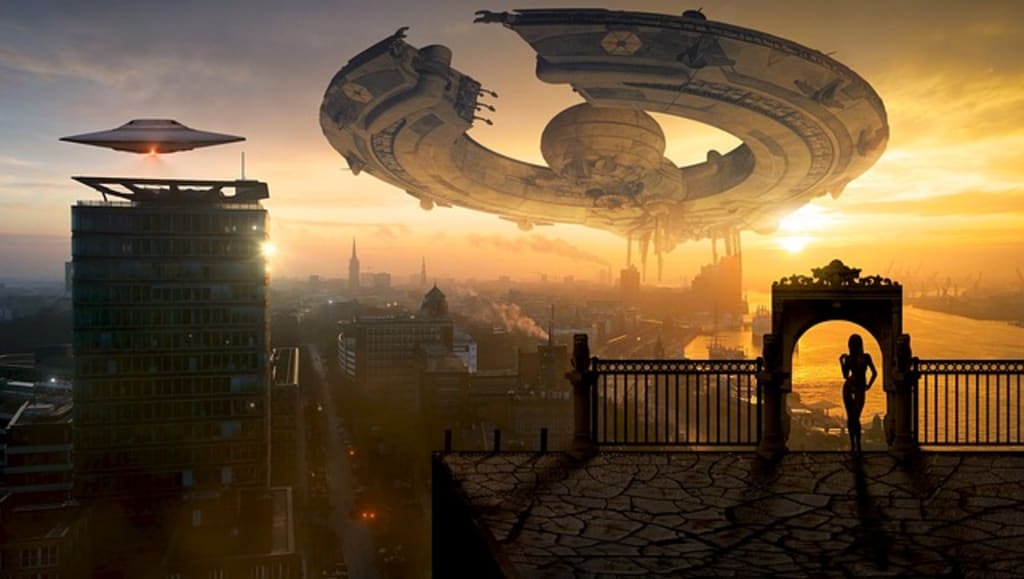
Science fiction, often shortened as sci-fi, is a genre of speculative fiction that explores the potential consequences of scientific and other innovations. From H.G. Wells' "The Time Machine" to Isaac Asimov's "Foundation" series, sci-fi has fascinated readers for over a century with its imaginative stories and thought-provoking themes.
Science fiction, commonly referred to as sci-fi, is a genre of fiction that deals with imaginative and futuristic concepts, often involving advanced science and technology, space exploration, time travel, parallel universes, and extraterrestrial life. Sci-fi often explores the potential consequences of scientific and other innovations, while also examining the impact of these advancements on society and human nature.
One of the defining characteristics of sci-fi is its focus on the impact of scientific progress on society. This can include everything from futuristic technology like robots and spaceships, to advanced concepts like time travel and alternate realities. By exploring these ideas in a fictional context, sci-fi writers are able to ask "what if" questions and speculate about the future of humanity.
Another common theme in sci-fi is the exploration of human nature and the human condition. Whether it's the struggle to survive in a post-apocalyptic world, the ethics of creating sentient beings, or the consequences of playing god with genetic engineering, sci-fi often delves into the fundamental questions of what it means to be human.
Sci-fi has also been used as a platform for social commentary and political critique. By setting their stories in imaginary worlds or distant futures, sci-fi authors are able to comment on contemporary issues without the limitations of real-world politics or societal norms. For example, Octavia Butler's "Parable of the Sower" is a dystopian novel that explores themes of race, class, and environmental degradation, while Ursula K. Le Guin's "The Dispossessed" critiques capitalism and imperialism through the lens of an anarchist society on a distant planet.
Despite its reputation as a niche genre, sci-fi has had a profound influence on popular culture and has inspired countless works of fiction, film, and television. From the "Star Wars" franchise to "Blade Runner" to "The Matrix," sci-fi has left an indelible mark on the collective imagination.
One of the earliest examples of sci-fi is H.G. Wells' "The Time Machine," published in 1895. The novel tells the story of a scientist who invents a time machine and travels far into the future to find a world divided between the childlike Eloi and the brutal, subterranean Morlocks. Wells' story was groundbreaking in its use of speculative fiction to explore societal issues, and it paved the way for the sci-fi genre as we know it today.
In the decades that followed, sci-fi continued to evolve and expand. The 1920s and 1930s saw the rise of "pulp" magazines like "Amazing Stories" and "Astounding Science Fiction," which published stories from some of the genre's most influential writers, including Asimov, Robert A. Heinlein, and Arthur C. Clarke.
The 1950s and 1960s are often considered the "golden age" of sci-fi, as the genre gained mainstream popularity through films like "The Day the Earth Stood Still" and "Forbidden Planet." This period also saw the emergence of new sub-genres like "New Wave" sci-fi, which focused on experimental and literary storytelling, and "cyberpunk," which explored the intersection of technology and society.
The 21st century has brought its own innovations to the genre, with the rise of "cli-fi" (climate fiction) and the increasing diversity of sci-fi authors and characters. Works like N.K. Jemisin's "Broken Earth" trilogy, which won the Hugo Award for Best Novel three years in a row, and the "Black Panther" movie, which featured a predominantly black cast and crew, have pushed the boundaries of what sci-fi can be and who it can represent.
While sci-fi has come a long way since its early days, the genre continues to be a source of inspiration and fascination for readers and creators alike





Comments
There are no comments for this story
Be the first to respond and start the conversation.